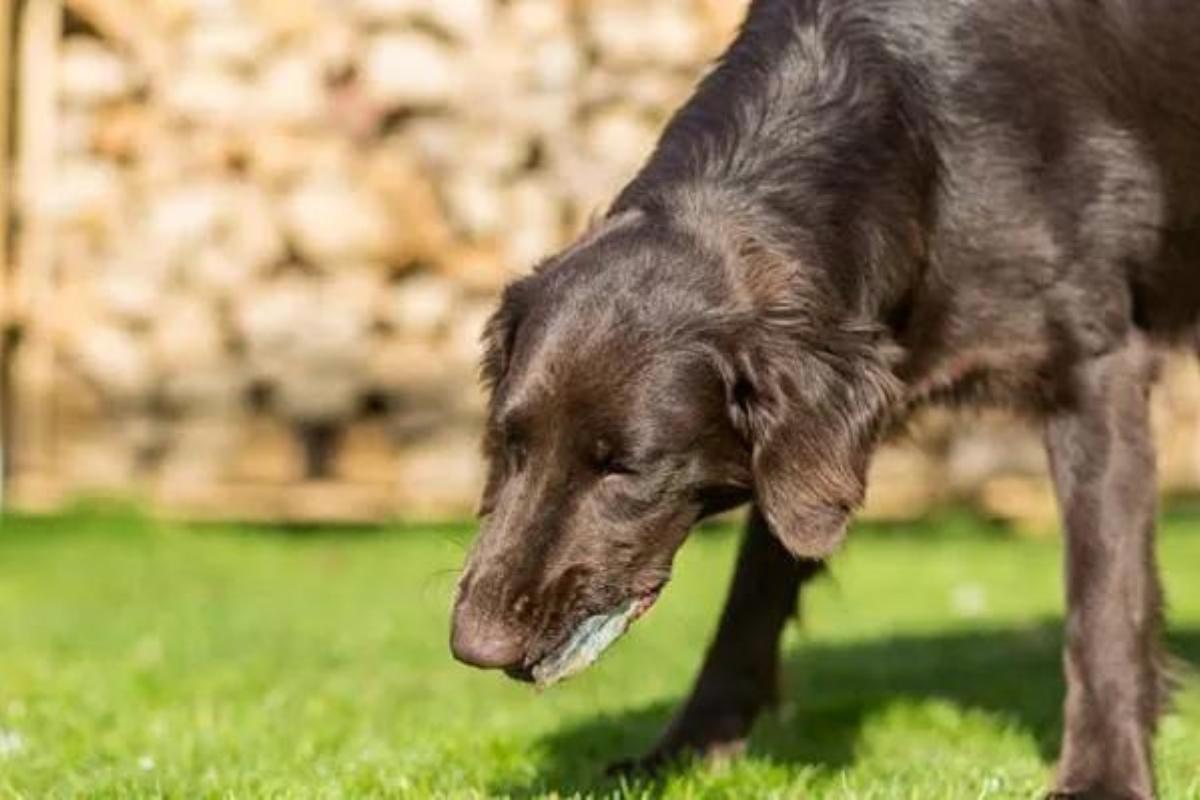What to Do If My Dog Inhaled Bleach Fumes



See files for Dogs
Inhalation of toxic gases and vapors is a relatively common cause of poisoning in dogs. This is because of the prevalence of cleaning products, lubricants and other chemicals we keep at home. Whether the dog has accessed them out of their own curiosity or we have accidentally exposed them to a harsh chemical, it can have serious repercussions on the dog's health. As one of the most common domestic cleaning agents, bleach is one of the most common causes of dog poisoning. Although it is possible they can ingest it, dogs inhaling bleach fumes is more common. Due to their acute sense of smell, bleach fume inhalation can be excruciating for a dog.
At AnimalWised, we find out what to do when your dog inhales bleach fumes. We look at the symptoms of bleach poisoning in your dog so you can know what to look out for and what treatment options are available.
What happens if a dog is poisoned by bleach?
Bleach is a general term for many strong chemicals with antimicrobial and disinfectant action. They are also used for removing colors, killing plants and other purposes, both industrial and domestic. The most common type of domestic bleach is sodium hypochlorite, a chlorine-based bleach which is also commonly known as ‘liquid bleach’. It is this type of bleach to which your dog will most likely be exposed.
As a toxic and corrosive substance, it is capable of causing harm in various ways. It is an irritant to skin and other external tissues of the body, but is particularly harmful if ingested. The fume from bleach are also sufficiently strong that they can cause damage to the dog's internal systems via inhalation alone. The three main routes of bleach poisoning in dogs are:
- Oral route: by accidental ingestion of bleach.
- Topically: when the bleach comes into contact with the skin.
- Inhalation route: by inhalation of bleach flumes.
Inhalation bleach poisoning is due to the formation of dichlor gas which is highly toxic. When it comes in contact with mucus membranes, this gas gives rise to the formation of hydrochloric acid, which produces significant cell damage.
In low concentrations, the inhalation of bleach produces a small irritation of the respiratory mucus membranes. However, inhalation of high concentrations of bleach, especially in closed or unventilated spaces, can cause:
- Rhinitis
- Conjunctivitis
- Pharyngitis and laryngitis
- chemical pneumonitis
- Acute pulmonary edema
The main symptoms of poisoning by inhalation of bleach in dogs:
- Eye irritation
- Irritative cough
- Sialorrhea (excessive salivation)
- Dyspnea (shortness of breath)
- Chest pain
- Nausea
- Vomiting
It is worth noting that the toxicity of bleach by inhalation can be increased when it is mixed with other cleaning products. These can produce very toxic fumes due to the chemical reactions which take place when they are mixed together. Some of the most dangerous bleach combinations include:
- Bleach + ammonia
- Bleach + hydrochloric acid
- Bleach + phosphoric acid
- bleach + vinegar
- bleach + alcohol
Now that you know the symptoms of bleach inhalation poisoning in dogs, we let you know what to do if your dog inhaled bleach fumes. Before we do so, you may be interested to know what other household products can kill your dog.

What to do if my dog inhaled bleach fumes
Whenever possible poisoning by inhalation of bleach is detected or suspected, the first thing to do is to remove the animal from the contaminated environment. We should also wash the mucus membranes (mainly eyes and nose) with water or saline solution to flush out as much of the toxicant as possible.
It is essential we take a dog that has inhaled bleach fumes to as veterinary center. Mild cases are usually easily resolved. However, severe poisoning requires emergency medical treatment. For this reason, it is important the animal is treated as soon as possible by a veterinary professional who can assess the severity of the poisoning.
Before knowing what can be given to a poisoned dog after exposure to irritating gases, it is necessary to know information about:
- Oxygenation
- Ventilation
- The acid-base status of the animal
To do this, it is necessary to take a sample of arterial blood and perform a blood test. It is also advisable to perform a chest X-ray to determine the status of the lungs, although it must be taken into account that diffuse damage and pulmonary edema may appear later.
Depending on the symptoms of the animal and the results of the diagnostic tests, support and symptomatic treatment will be established. These symptom management treatments may include:
- Mechanic ventilation
- Oxygen therapy
- Fluid therapy
- Mucolytics
In the case of dogs that remain asymptomatic after exposure to bleach by inhalation, it is important to monitor the possible appearance of signs of intoxication for about 8-10 hours. If they do not show any signs of illness after this, they should be able to continue as normal.
How to prevent my dog from inhaling bleach fumes
As we have seen throughout the article, bleach is a product capable of producing poisoning in dogs through different pathways. Preventing this type of poisoning is simple as long as the following precautions are taken into account:
- Apply the bleach following the manufacturer's recommendations for use, especially with regard to the concentration in water.
- Use the bleach in open or well-ventilated spaces.
- Keep animals away during bleach application.
- Rinse treated surfaces with which animals may come into contact.
- Keep stored bleach out of reach of pets.
- Do not mix bleach with other products with which they can react and generate toxic gases, such as ammonia or hydrochloric acid.
Although exposure to bleach can happen, our dog will likely try to stay away from it if they smell it from afar. learn more with our related article on smells that dogs hate.

This article is purely informative. AnimalWised does not have the authority to prescribe any veterinary treatment or create a diagnosis. We invite you to take your pet to the veterinarian if they are suffering from any condition or pain.
If you want to read similar articles to What to Do If My Dog Inhaled Bleach Fumes, we recommend you visit our Other health problems category.
- Ballesteros, J., & Martinez-Arrieta, R. (2005). Acute poisoning in the home; inhalation exposures. Therapeutic Information of the National Health System, 29(4), 96-107.
- Heredia, N., Cardero, N., Ríos, S., Oliva, S., Durán, I., & López., M. D. Chemical pneumonitis due to sodium hypochlorite: apropos of three cases. UGC Critical Care and Emergency. HRU Malaga.
- National Institute of Toxicology. (2017). Poisoning by cleaning products.






